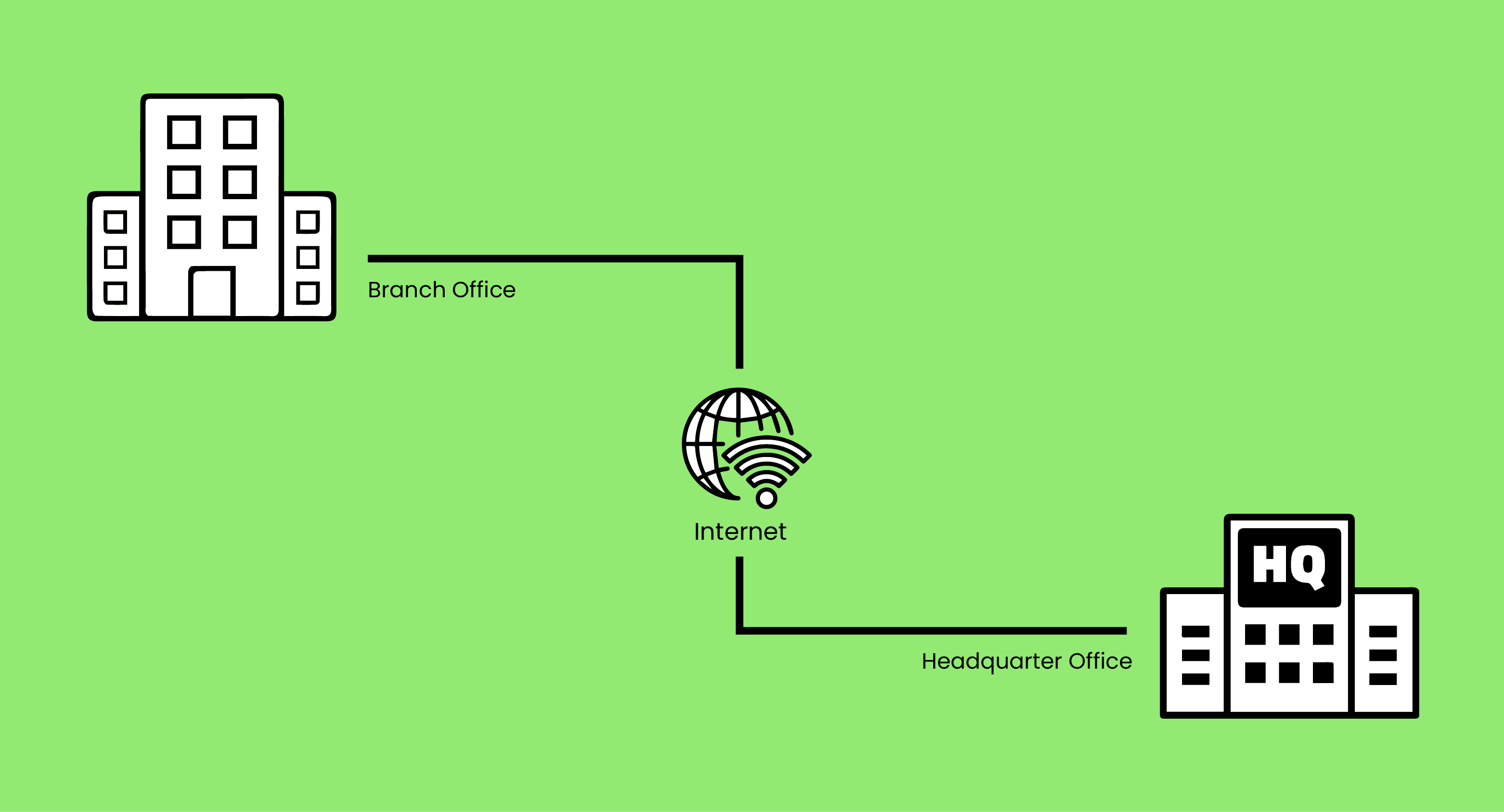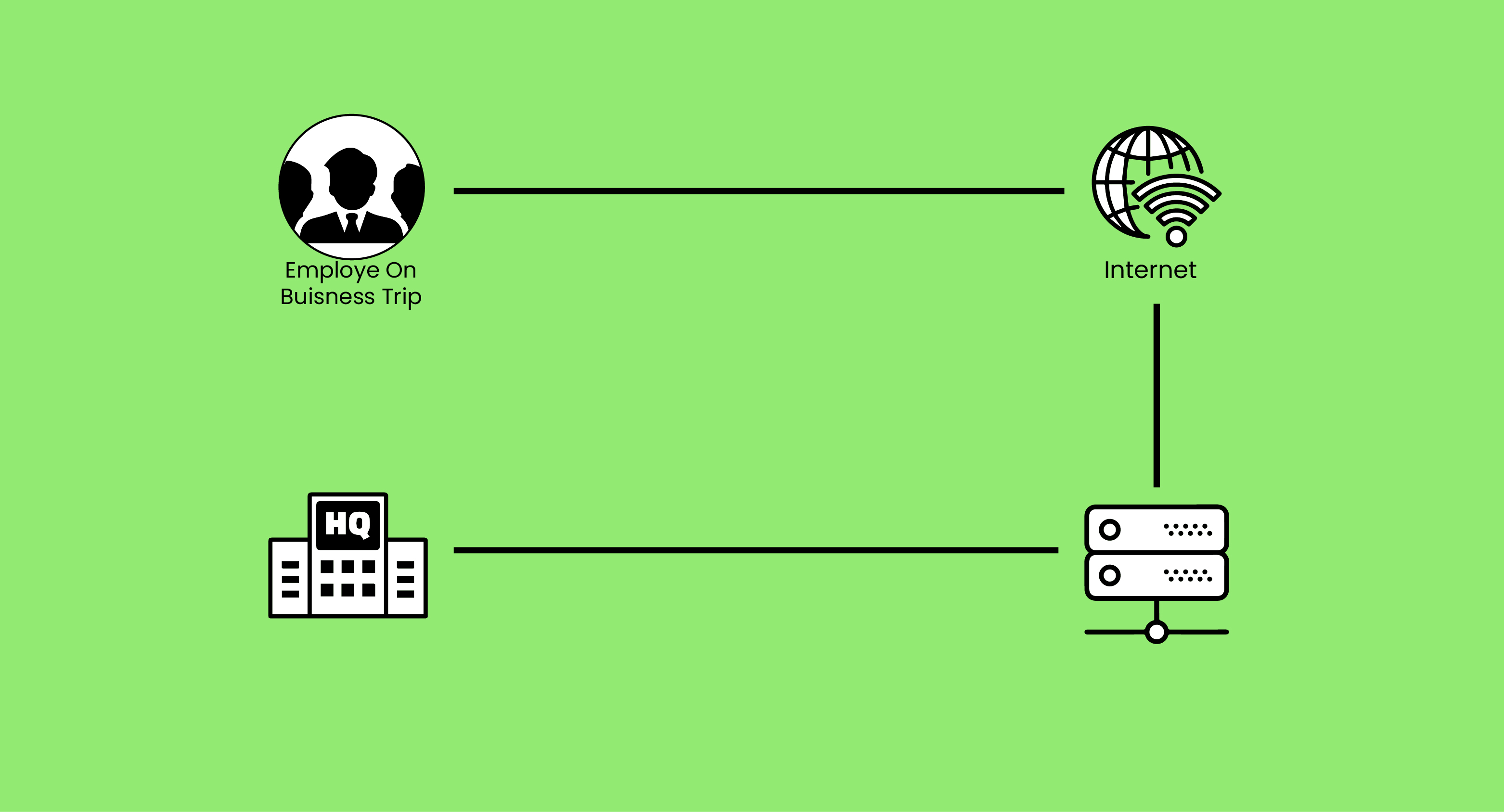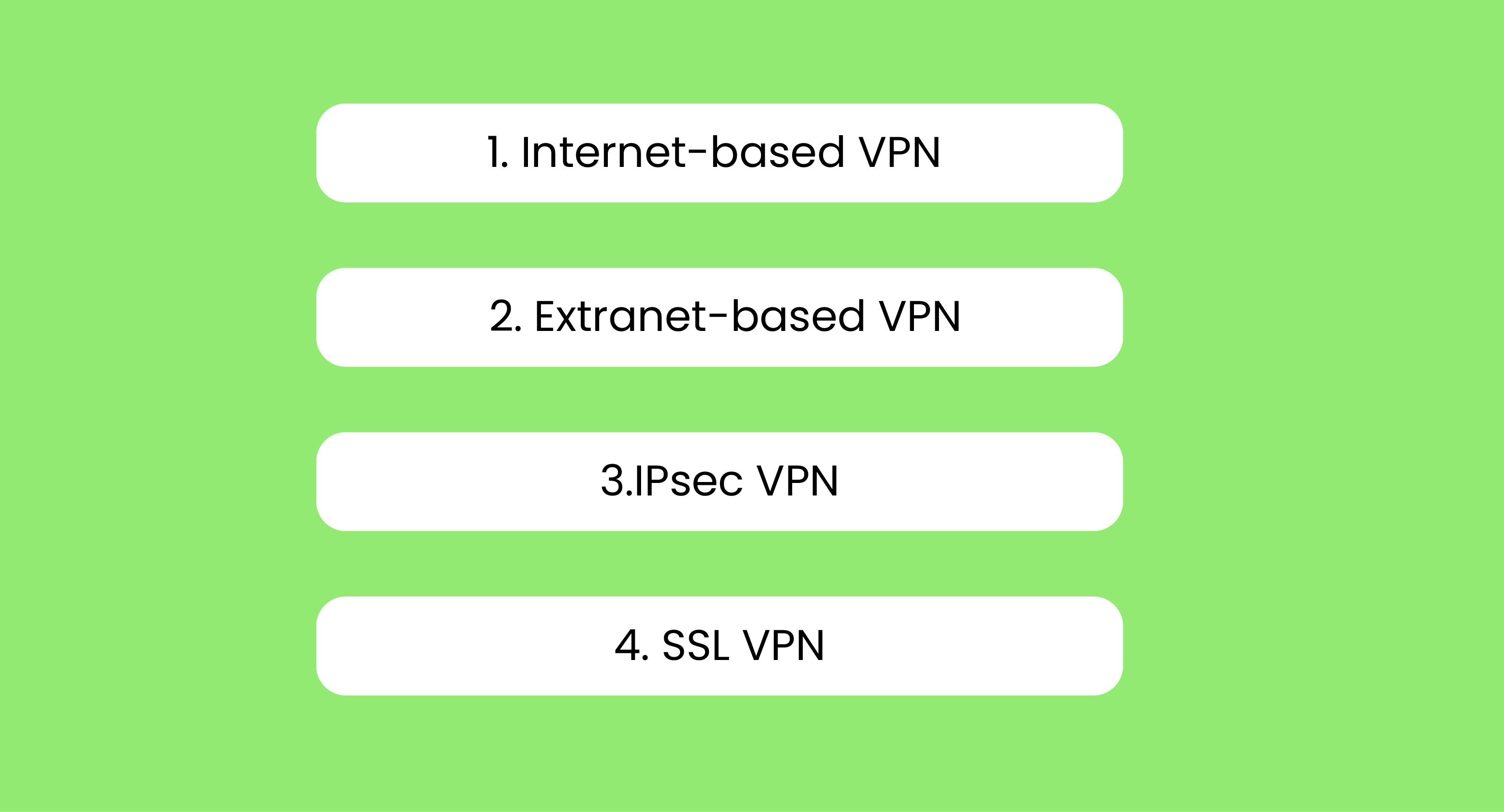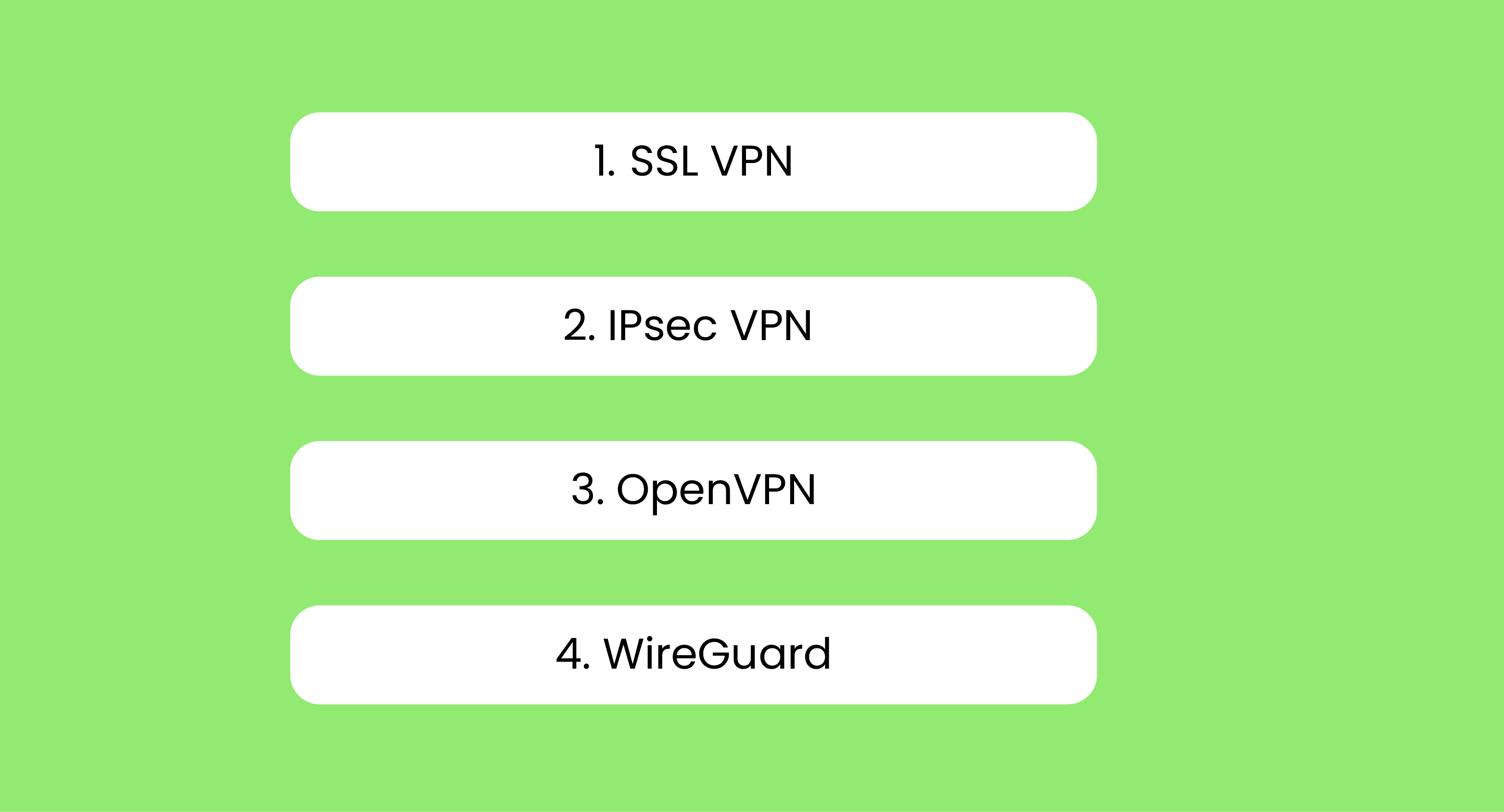When businesses look to secure their network connections, two common VPN solutions emerge: client-to-site VPNs and site-to-site VPNs. While both provide encrypted, secure connections over the internet, they serve very different purposes.
A client-to-site VPN connects individual remote users to the company network, while a site-to-site VPN connects entire office networks or branch locations, ensuring seamless communication between sites.
It's essential to understand the differences between these two approaches to choose the right solution for your business.
Site-to-Site VPN Defined
A site-to-site VPN vs a client-to-site VPN connects two or more networks over the Internet. By doing this, it creates a virtual bridge between the networks, allowing them to share resources securely. Most common VPNs used for site-to-site VPNs include a router or a firewall.
Client-to-Site VPN Explained
Client-to-site VPN, also known as a Remote Access VPN, is a type of Virtual Private Network that enables individual users to securely connect to a corporate network from any location via the internet.
Client VPN vs site-to-site VPN configuration is commonly used to support remote work, telecommuting, and traveling employees who need access to internal company resources.
Additionally, users should understand the differences between VPNs and antivirus software, recognizing that both are not limited to just securing data. These approaches differ in their methods.
Client to Site vs Site to Site VPN: Key Differentiating Features
Some of the key distinguishing features of client-to-site vs site-to-site VPN are as follows:
|
Aspect |
Site-to-Site VPN |
Client-to-Site VPN |
|---|---|---|
|
Purpose |
Connects two or more office networks securely over the Internet. |
Connects individual remote users securely to the company network |
|
Users |
Entire networks (offices, branches) are connected together |
Individual users (employees, contractors) connect remotely |
|
Connection Setup |
Router-to-router or firewall-to-firewall connection, always on |
User-initiated connection via VPN client software on the device. |
|
Management |
Managed by IT centrally, usually at the network or gateway level |
Managed per user, with authentication and device setup |
|
Authentication |
Typically based on pre-shared keys or digital certificates between sites. |
Typically uses username/password + multi-factor authentication. |
How Does a Site-to-Site VPN Work?

A site-to-site VPN vs client-to-site VPN works by creating a secure, encrypted connection between the VPN gateways at two or more physical office locations over the internet. Once configured, all traffic between these sites is automatically routed through this tunnel, allowing devices on one local network to communicate with devices on another.
The VPN gateways handle encryption, decryption, and authentication, ensuring the connection is secure and seamless for end users, eliminating the need for VPN software on individual devices.
How Does Client-to-Site VPN Work?

A client-to-site VPN vs site-to-site VPN works by allowing an individual user to securely connect to a company’s private network over the internet. The user installs VPN client software on their device, which initiates a connection to the organization’s VPN gateway.
After successful authentication and authorization, an encrypted tunnel is established between the user’s device and the corporate network. All data transmitted through this tunnel is encrypted, allowing the user to access internal resources securely, as if they were physically on-site at the company. This is ideal for remote work, travel, or accessing the network from home.
Types of Site-to-Site VPNs

There are various types of site-to-site VPNs, each one differing from the others in its features. The most common types are as follows:
1. Internet-Based VPN
Internet-based VPN connects multiple branch offices within the same organization, enabling them to share resources and communication securely over the internet. It is one of the VPN types for businesses as it connects different organization's branches seamlessly.
It is used by remote workers to securely access the corporate network over the public internet, offering convenience and data protection.
2. Extranet-Based VPN
Extranet-based VPN links the organization with external partners and customers. Similarly, it enables secure communication and information exchange between different entities.
It is used by businesses, vendors, or clients to securely access a specific part of a company’s network, enabling efficient collaboration without exposing the entire system.
3.IPsec VPN
It uses the IPsec protocol to encrypt and secure data. It provides a high level of security for the connection.
this VPN used for remote employees, providing strong encryption and secure remote communication over the internet.
4. SSL VPN
It employs Secure Sockets Layer protocol, which is used for secure remote access. It can also be configured for site-to-site connections.
This type of VPN is commonly used by businesses to enable employees to securely access internal resources from anywhere.
Types of Client-to-Site VPN

Client-to-site VPNs, compared to site-to-site VPNs, are equally important in today’s digital landscape. There are several types of client-to-site versus site-to-site VPNs. you can protect your online privacy with NordVPN, giving secure digital expereince to users. Likewise, surfshark is the best VPN for online privacy, ensuring users personal data and information remain secure.
Hence, It is important to have a nuanced understanding of each of the factors so that you can choose the VPN that best suits your needs.
1. SSL VPN
SSL VPN uses standard HTTPS to encrypt traffic between the client and the corporate network. It's typically accessed through a web browser or a small client application, making it very user-friendly.
It is used by remote employees, providing secure access to the internal application through a web browser.
2. IPsec VPN
IPsec VPN provides strong encryption and operates at the network layer, allowing full access to the internal network. It requires a dedicated VPN client to be installed on the user’s device.
It is commonly used in enterprise environments where high security and broad access are necessary.
3. OpenVPN
OpenVPN is an open-source VPN solution that uses SSL/TLS for key exchange and encryption. It requires client software but is known for its strong security, flexibility, and ability to traverse NAT and firewalls.
IT administrators and tech-savvy users widely use OpenVPN for creating secure point-to-point or site-to-site connections, offering high configurability and strong encryption across various platforms.
4. WireGuard
WireGuard is a modern VPN protocol that is extremely lightweight, fast, and secure. It uses advanced cryptography and is easy to configure.
Although newer than other protocols, it is rapidly gaining popularity for both corporate and personal use due to its performance and simplicity.
The Significance of Site-to-Site VPN vs Client-to-Site VPN
Site-to-Site VPN Significance
Implementing a site-to-site VPN vs client VPN is crucial for securely connecting different office locations over the internet. It allows these locations to share resources and communicate as if they were part of the same local network, ensuring data travels safely between sites.
It enhances security and simplifies the management of multiple connections, facilitating the management of multiple connections. It also protects against potential cyber threats, making it a viable solution for maintaining secure inter-office communication.
Client-to-Site VPN Significance
A client-to-site VPN vs site-to-site VPN is important because it enables secure remote access to an organization's internal network from virtually anywhere. In today’s world of remote work, travel, and flexible work environments, employees, contractors, and partners often need to access sensitive company resources outside the physical office.
A Client-to-Site VPN creates an encrypted tunnel between the user’s device and the corporate network, ensuring that data transmitted over public or untrusted networks remains private and protected from cyber threats. In short, it’s a vital tool for secure, reliable, and flexible remote connectivity.
Benefits of Site-to-Site VPN vs Client-to-Site VPN
Site-to-Site VPN Benefits
The top benefits of site-to-site VPN vs client VPN are:
- The encryption data transfer feature restricts access from unauthorized resources.
- Site-to-site VPN vs. client-to-site VPN uses the public internet rather than an expensive dedicated leased line, which is a cost-saving measure.
- It facilitates seamless communication and sharing by allowing different locations to operate as a single network.
- Site-to-site VPNs vs. client VPNs offer centralized network administration, making it easier to manage and monitor connections between different sites.
Client-to-Site VPN Benefits
The top benefits of client-to-site VPN vs site-to-site VPN are as follows:
- A client-to-site VPN vs site-to-site VPN allows remote workers to connect to the company network from anywhere securely. This ensures that sensitive business data can be accessed without exposing it to public internet risks.
- The VPN encrypts all data transmitted between the user’s device and the company network. This protects against hackers, snooping, or interception, even on unsecured public Wi-Fi.
- Users can access internal systems, such as file servers, databases, and intranet applications, as if they were on the local network. This enables seamless collaboration between remote and in-office staff.
- IT teams can apply consistent security policies, such as firewalls, antivirus, or multi-factor authentication (MFA), across all users, whether they are remote or on-site. This reduces the risk of inconsistent configurations or security gaps.
FAQs
When Should a Business Choose a Site-to-Site VPN over a Remote Client VPN?
A Site-to-Site VPN is ideal when you need constant, automated connectivity between two or more office networks. A Remote Client VPN (client-to-site VPN) is better when you need to provide access for individual remote workers, freelancers, or traveling employees.
How Does a Client-to-Site VPN Ensure Secure Access for Remote Users?
A client-to-site VPN uses secure tunneling protocols and encryption. Each user connects through VPN client software, which authenticates their identity and establishes a private, encrypted tunnel to the company’s internal network.
What are the Performance Differences Between Site-to-Site VPN vs Remote Client VPN?
Site-to-Site VPNs often offer better, more stable performance for inter-office traffic because they are designed for continuous network-to-network connections. In contrast, Remote Client VPNs may depend on individual users’ internet quality and device performance.
In a nutshell, client-to-site VPN and site-to-site VPN are important for businesses and individuals. They both ensure seamless connection to users while guaranteeing the protection of their sensitive information. Having all the basic knowledge at your fingertips will help you to make a determined decision.
By using an Antivirus with VPNs, users can experience fast speeds with enhanced security of data. Similarly, by using the best AI security tools, users can prevent access to malicious traffic.
However, Free vs Paid VPN Services have many differences, each offering distinct features. The choice ultimately depends on the user’s specific needs and priorities
Stay tuned to Virtual Codes Vaults for more information!

